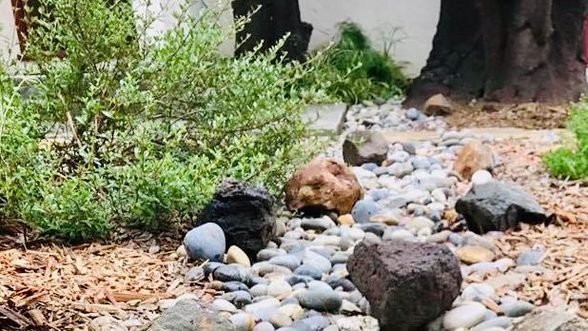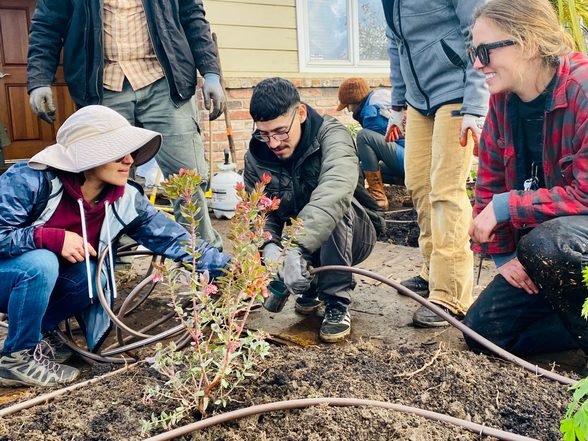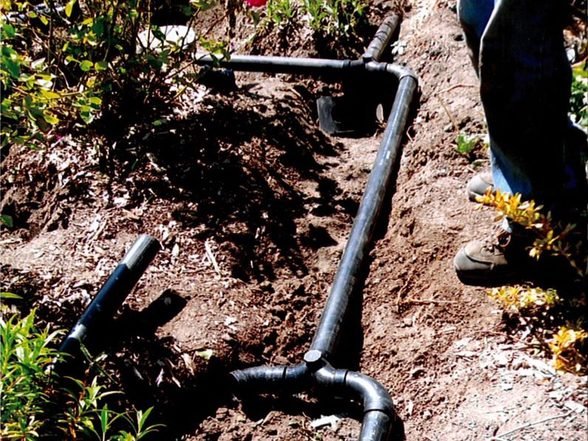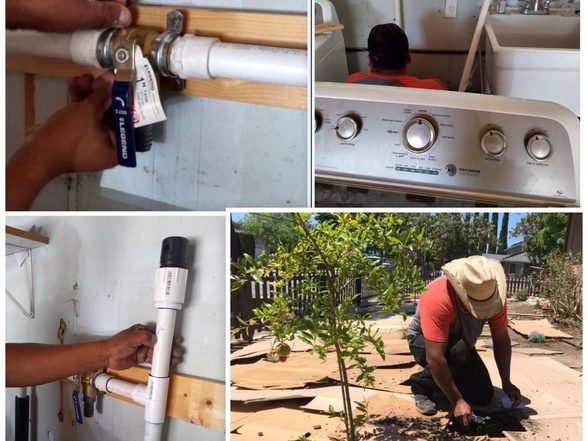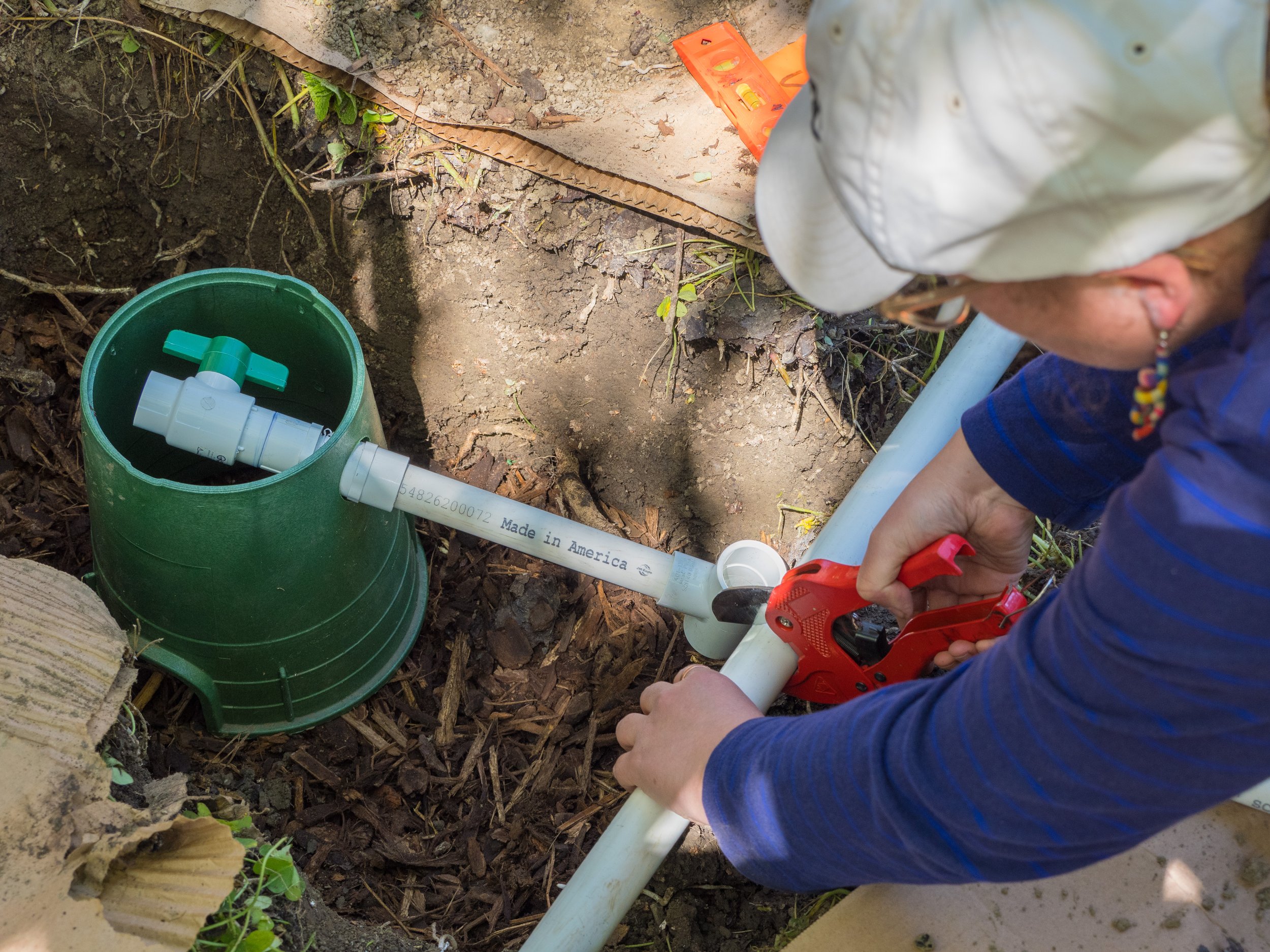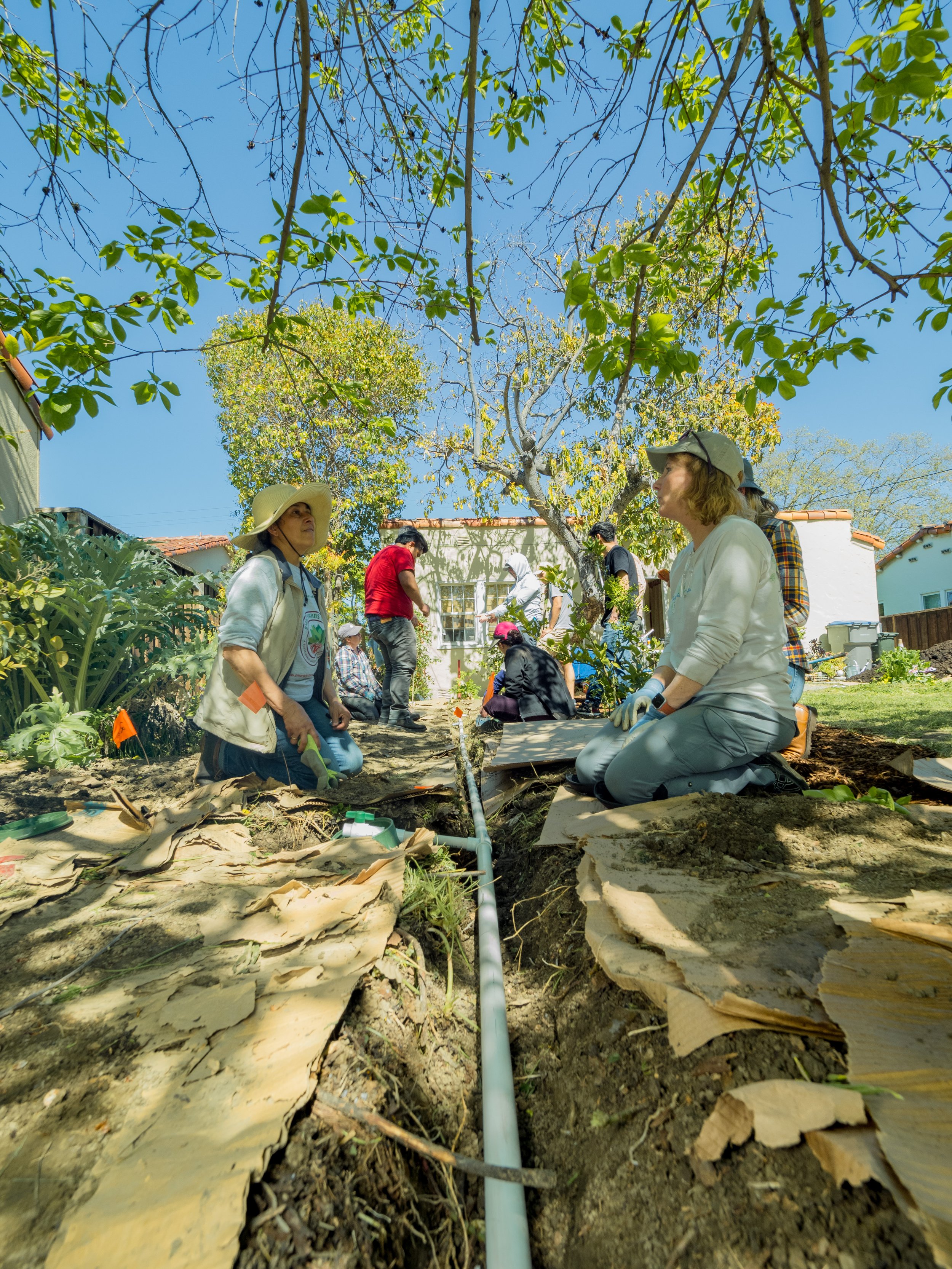World Water Day 2023
Greetings from the Smart Yards Coop team! It is with immense gratitude we share this newsletter with you as we have just reached yet another spring solstice. In this article, we would like to pay homage to Water World Day, which is celebrated annually on March 22nd. This international holiday was proposed to the U.N. in 1992 and the first official day of observation began in 1993. It is intended to draw awareness to several issues locally and globally, in which the water cycle, environment, and earthly inhabitants are continually impacted.
How to Grow Water
Working with Nature, Not Against It
At Smart Yards Co-op, we utilize horticulture & permaculture design and installation methods. One of the key permaculture principles is: Slow it, Spread it, Sink it. We do this with our passive and active storm rain management techniques, all with the goal of optimizing water use and to prevent run off pollution. We convert lawns into water-wise, habitat and pollinator gardens by: designing them in co-creation with their location, supporting them with a passive rainwater harvesting setup, and replacing sprinkler systems with drip irrigation lines. We plant California native landscapes, incorporating drought-tolerant plants and ground covers suited for the location.
Valley Water Landscape Rebate Program & Grey Water
There is plenty to go around
The Valley Water Landscape Rebate Program is available to residents and businesses as an option to transform their yards. Folks interested must be approved by the program first in order to make a shift from high-water usage to low-water. Typically, lawns and pools drink a considerably high amount of water per year. Smart Yards Co-op collaborates with Santa Clara Valley Water and residents, assisting with choosing materials and plants that meet the program criteria. Residents are reimbursed $2 per square foot in the lawn conversion and may be approved for up to $3000 by this program.
Additionally, Smart Yards Co-op takes it further and offers grey-water designs which redistribute runoff from laundry, showers, baths, tubs, sinks, and more into appropriate mulch basins located throughout your yard.
Grey-water is the end-product from our showers, sinks, washing machines, or other kitchen appliances. It is clean enough to be used in the garden for trees, shrubs, and most vegetable plants. A grey-water system expand beyond our city’s main water system and saves water (along with money) in the long term. Of course, folks who have this type of system have to be mindful of what products are used when washing their hands or laundry to make sure it is garden and eco-friendly.
What kind of relationship do you have with water? What role do we play in the life of water? We may ponder on this question deeply and recognize that it reveals there is a relationship taking place every time a shower is needed, laundry is to be washed, or when food and gardens are to be grown. Water is an essential ingredient for life to thrive and makes up most of the Earth’s surface, with just a small amount that is considered drinkable.
It is important for us to acknowledge that in less industrialized regions around the world, accessing drinkable and clean water is not as simple as turning on the faucet. The well beings of people from these regions are often impoverished and they suffer from polluted water sources due to human activities and drought as a result of climate change. Women in these locations are unable to attend school, work, nor be present with their families, as it is their sole responsibility to find water. Much of their time is spent searching for water so that it may be used for daily functions: drinking, cooking, sanitation and hygiene.
Indian women from the aboriginal 'Kol' community collect drinking water at a well in Nawargawa village, in Madhya Pradesh state. UMA SHANKAR MISHRA/AFP via Getty Images. Image from Journalism CSIS
Over the last couple centuries, the Water Cycle has experienced disruptions increasingly since human activities became geared towards the development infrastructures in order to power industrialized societies around the world. Present examples would include: hydroelectric dams, large-scale farming irrigation, deforestation, and the burning of fossil-fuels. The consequences are a chain of events and affect all ecosystems on Earth. For reference and more information on this topic, you can click HERE.
Image from Wikipedia
What is within our power?
There are choices in each moment, every drop counts.
We can start by assessing our everyday habits with water and tap into local/global causes surrounding the protecting water as a human right and holding governments (local/global) accountable. But before we delve into government responsibilities, here are some simple areas that we have immediate control over:
There is no need to use sprinklers during precipitation
Reduce the length of shower time
Reduce the amount of water used for a bath or sink tub
Shut off the water in between brushing your teeth and washing your hands
Wait until your laundry and dishes can be washed in a FULL load
Fix leaks
Improve your irrigation in the garden
Keep in mind: it all adds up!
Taking responsibility is not limited to individual consumers in the water crisis. Our local, state, & national leaders play a key role in the root of the issue: commodification and privatization of water, which has been trending and expanding globally. Commodification can be defined as a type of process that puts a price on a resource or material, whereas privatization is the process of transferring public use + access to private ownership + control. Currently, corporations are not regulated from buying and operating public water sources, such as in the many cases of Nestle. This is not old news nor is it surprising, as colonialism and imperialism have evolved over the centuries.
“Someone needs to explain to me why wanting clean drinking water makes you an activist, but proposing to destroy water with chemical warfare doesn’t make a corporation a terrorist.”


